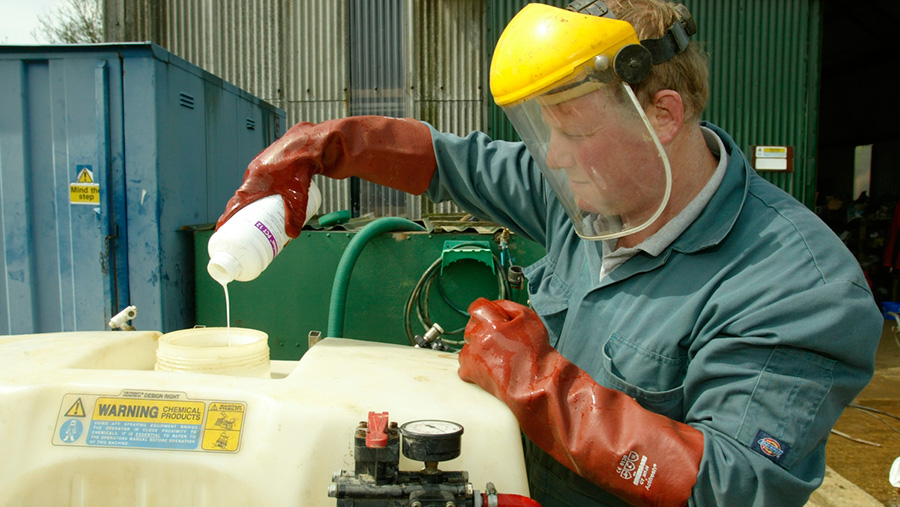Pesticide withdrawal ‘puts food supplies at risk’
 © Tim Scrivener
© Tim Scrivener Food supplies will be put at risk is more crop protection products are withdrawn – resulting in a slump in farm incomes, warns a report.
As many as 75 active ingredients risk being withdrawn by Brussels, according to a study prepared for the European farm union umbrella organisation Copa-Cogeca.
Some 40 active ingredients said to be at most risk of withdrawal are worth €1.1bn (£0.94bn) to UK growers, says the study by strategy consultancy firm Steward Redqueen.
Staple crops
The report focuses on the impact of product withdrawal on five staple crops.
See also: Delay to glyphosate reapproval ‘sets dangerous precedent’
UK growers would see a 10-20% fall in yields of wheat, barley, sugar beet, potato and oilseed rape if the 40 active ingredients are withdrawn, the document suggests.
At the same time, the report estimates that variable costs for growing these staple costs would increase by about 15% a hectare.
Speciality crops such as peas would be affected to a similar extent, says the report.
Wheat would be the most affected crop, with €400,000 (£340,000) wiped off the annual value of UK farm output, according to the study.
The report looked at the cumulative impact in the EU of having a hazard-based legislative approach for assessing crop protection products, instead of a risk-based one.
Competitive disadvantage
Copa-Cogeca secretary general Pekka Pesonen said phasing out crop protection products was putting pressure on farm livelihoods as well as on the environment and economy.
“Many of the substances identified in the report are still being used in non-EU countries, putting us at a complete competitive disadvantage, with no advantage to the European consumer.”
Hazard v risk
In total, the study identifies 75 substances it says are at risk of withdrawal as the EU moves to a licensing system based on hazard rather than risk.
Many of the substances identified in the report are still being used in non-EU countries, putting us at a complete competitive disadvantage, with no advantage to the European consumer Pekka Pesonen, Copa-Cogeca
It suggests yield losses of up to 40% estimated for some commodities, reducing farm profitability by as much as 40% or a total of €17bn (£14bn) across the EU.
Seven staple crops identified in the report – barley, wheat, rapeseed, maize, potatoes, sugar beet, and grapes – correspond to 1.2m jobs, says the study.
Re-approval struggle
Recent active ingredients that have struggled to secure re-approval include glyphosate and neonicotinoid seed treatments on oilseed rape.
Farm leaders blamed recent delays to glyphosate re-approval on political manoeuvring by EU countries rather than scientific evidence.
Asked whether future licencing would be based on science or subject to political meddling, EU farm commissioner Phil Hogan said: “Political meddling goes on in the UK as well.
“The EU commission recently has brought about a re-approval process for glyphosate, but I understand the British government has taken a different point of view on neonicotinoids – I can’t hold responsibility for that.
“But science will be the basis on which we will evaluate all of the various licence applications and that’s the way it should be.”
Yields down
Max Schulman, chairman of the Copa-Cogeca cereals working party, said: “We are already seeing the impact of the neonicotinoid seed treatment ban on EU rapeseed, corn and sunflower production.
“Yields are down and the area sown is falling as some farmers are switching to other crops because they do not want to take the risk.
“This means rapeseed is being dropped from crop rotations which has a negative environmental impact.
“Resistance also builds up if there is no rotation in active substances.”
Action was vital because there was a lack of alternative crop protection tools and withdrawn substances were unlikely to be easily replaced.

